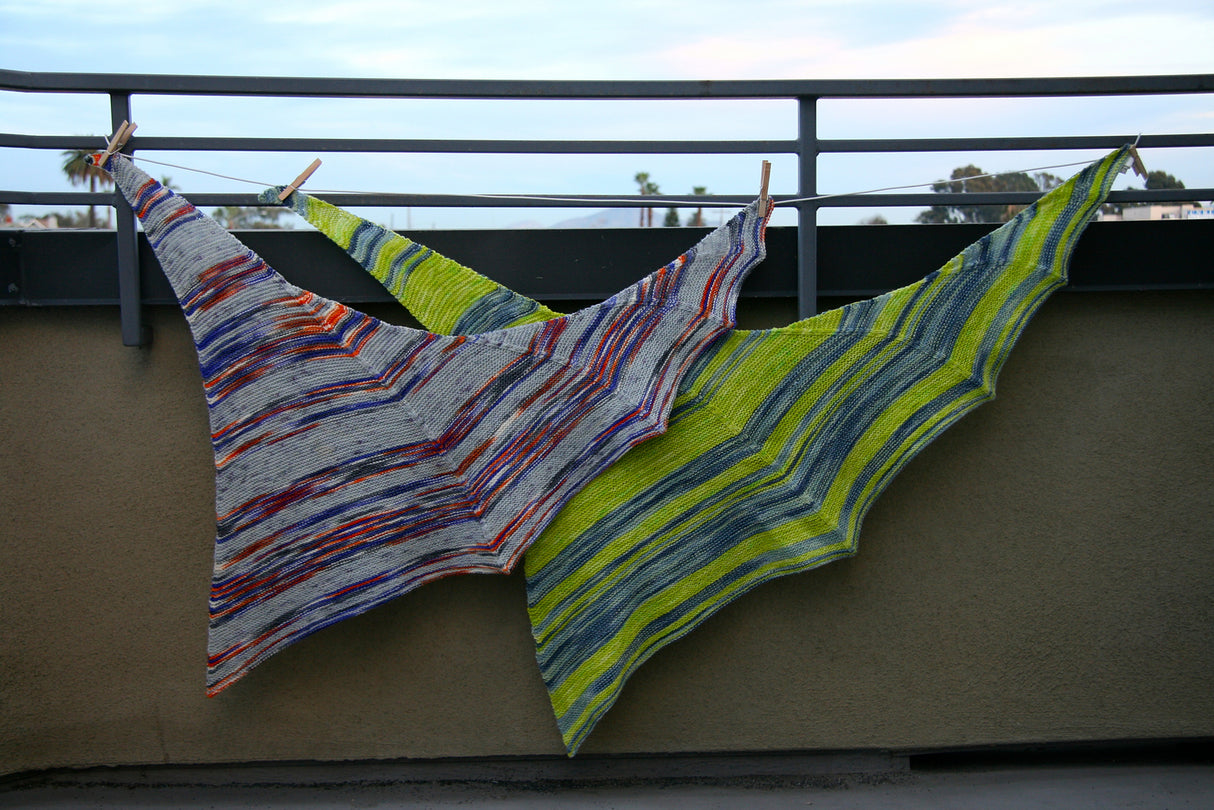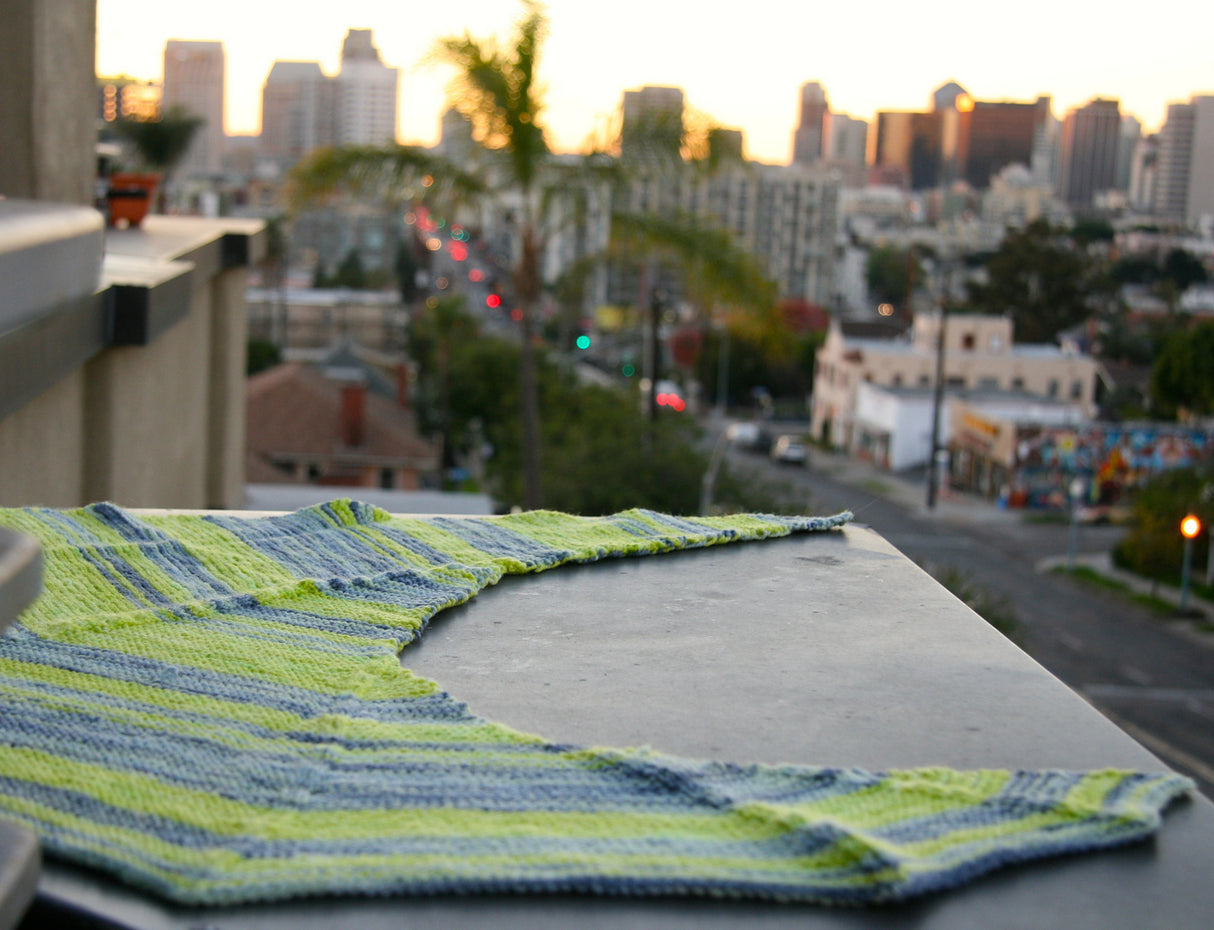Kepler by Helena Bristow
This asymmetrical shawl, worked bottom up from the base of all triangles to the tip of the largest, is formed of a series of (nearly) golden ratio triangles in (abbreviated) Fibonacci stripes. The pattern is named for 17th Century German mathematician Johannes Kepler, who first observed that the ratio of consecutive Fibonacci numbers converges to the golden ratio; though he did not have the chance to observe how lovely they are in this combination.
The pattern is a little tricky, you’ll be keeping track of stripes in one pattern while decreasing in another. It can get a little confusing, so this might not be the best knitting to travel with, drink wine over, or take to knitnight, unless you’re very fastidious about keeping track of rows, or very good at reading your knitting (and have a much better memory than mine).
Materials:
- Size 5 circular needle, 40” or longer in length
- 4 stitch markers
- Oink Pigments Targhee Sock or Oink Sport, or other sport weight or heavy fingering weight yarn, 1 skein each in 2 contrasting colors.
Shown in “Sea Glass” & “Dill With It” (slate blues & lime green) and “Mystery Flavor” & “The Silver Lining” (orange, grey, purple & pale grey). If substituting yarns, you will need appx 345 yards Color A and 315 yards Color B. If your gauge is different than indicated, you may run out of yarn.
THIS IS A DIGITAL DOWNLOAD OF THE INSTRUCTIONS TO MAKE THE PICTURED GARMENT. THIS IS NOT A FINISHED GARMENT. THIS DOES NOT INCLUDE ANY YARN.



